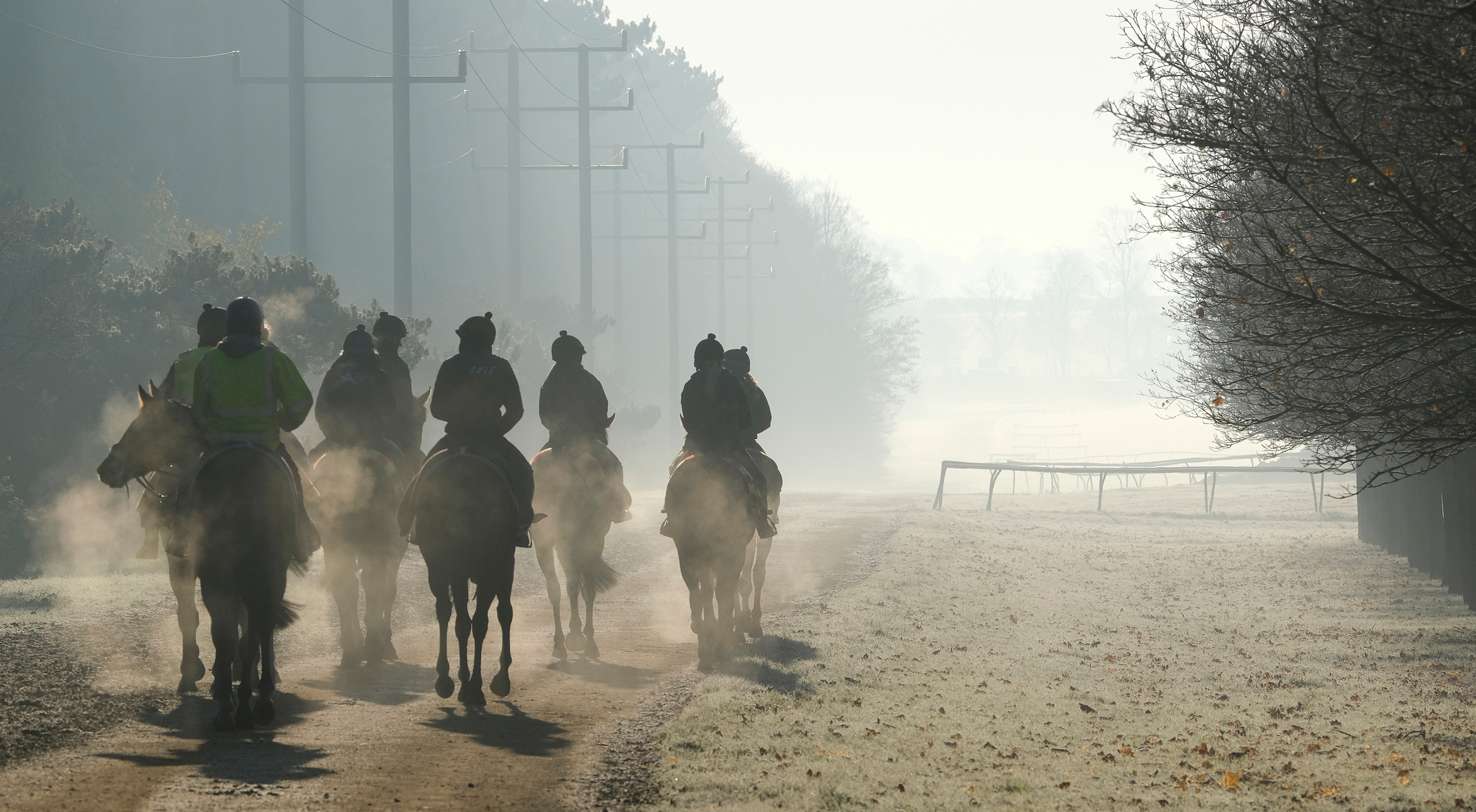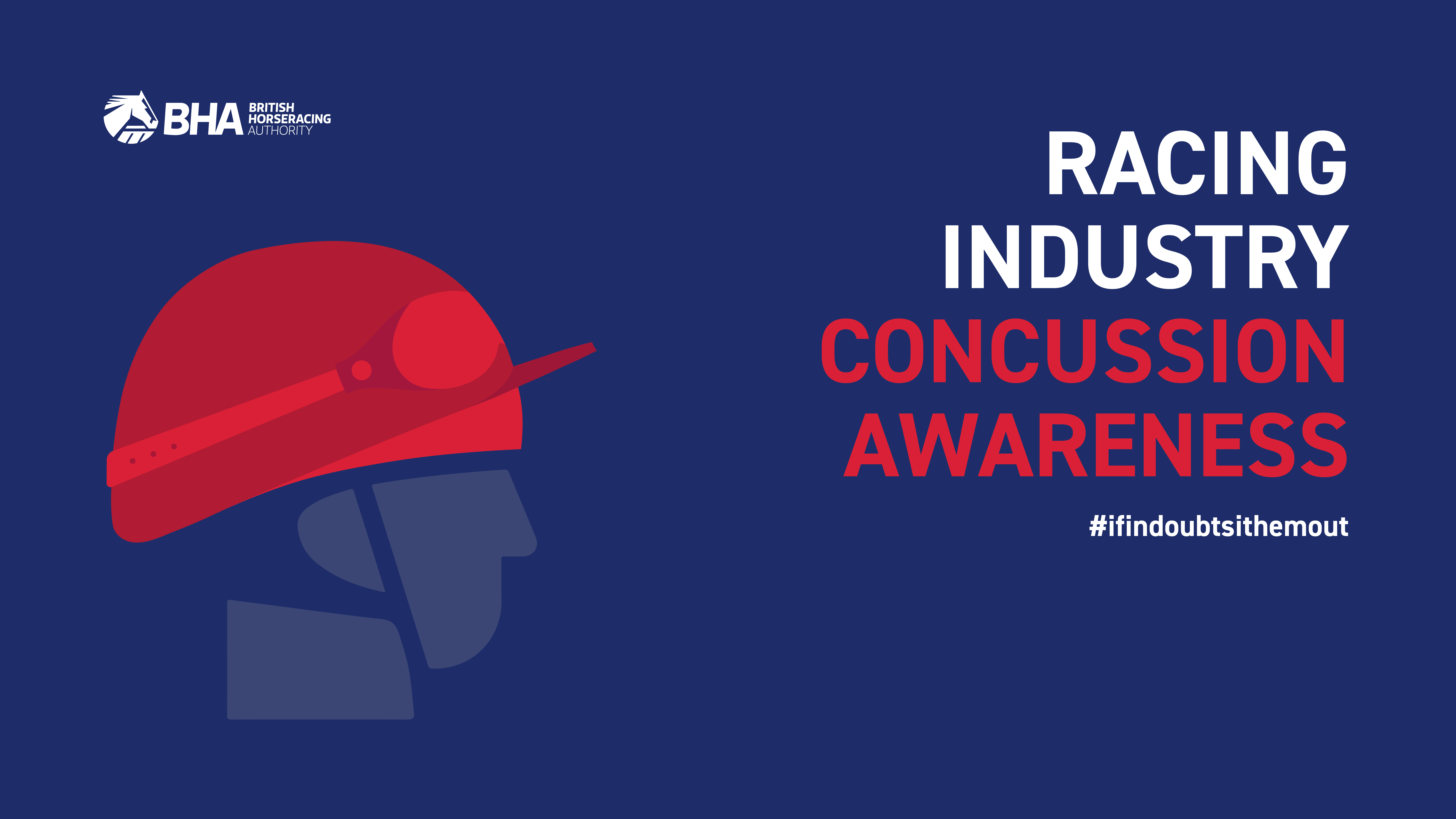
- Concussion learning module available now for free on Racing2Learn
- Recommended for those in British racing working in horse-facing roles
- Offers racing-specific guidance, underpinned by expert medical advice
British racing has today launched a new online concussion awareness learning module to help those working with and around horses spot the signs of concussion and return safely to work following a head injury.
Concussion is an injury to the brain that can occur after falling from a horse or after any impact to the head or body. It is the third most common injury for jockeys, but can happen to anyone in racing – on the racecourse, riding out on the gallops or even in the training yard.
Given the higher-risk nature of our sport, remaining at the forefront of concussion management is a priority for British racing, with education around how to recognise and recover from head injuries central to this approach.
The new learning module is available now on Racing2Learn and builds on existing medical advice and British racing’s robust jockey protocols to provide industry-specific concussion guidance to everyone working in horse-facing roles.
Developed by the British Horseracing Authority (BHA) and funded by the Injured Jockeys Fund (IJF) and the Racing Foundation, the module helps participants:
- Recognise how concussion looks and feels – and how to spot it in others
- Remove a person with suspected concussion to a safe place and seek medical advice
- Recover from concussion, allowing sufficient time for the brain to heal
- Return safely and gradually to riding and horse-facing roles.
The guidance recommends taking time to rest and recover in the first 24-48 hours following a concussion, with minimal activity, reduced screen time, plenty of sleep and seeking medical support via NHS 111 or a GP if symptoms don’t start to settle.
It also advises against riding or any tasks that may result in head impact or injury for a minimum of 21 days following concussion, with the gradual return to activity helping reduce the risk of further injury or longer-term problems.
While aimed primarily at those working directly with horses, such as jockeys, trainers and stable employees, the advice is also applicable to those in support roles, like valets and racecourse teams, who may be well placed to help spot and help manage concussion in others.
Those taking the module will also have access to a suite of downloadable resources, which offer further guidance around symptoms, recovery, and rehabilitation, together with signposting to additional support services.
The guidance has been developed by medical experts and racing professionals in line with the UK Government’s grassroots sport guidelines, If in doubt, sit them out, so that it adheres to best practice health advice, while ensuring it is this relevant to managing concussion within the racing environment.
Jockeys and riders licensed by the BHA (amateurs and professionals) should note that while they are encouraged to complete the module to help improve their own understanding of concussion, their return to race riding following head injury will continue to be managed by the BHA Medical Department in partnership with the IJF.
Dr Jerry Hill, the BHA’s Chief Medical Adviser, said:
“Given the risks associated with our sport, we take concussion very seriously and already have comprehensive protocols in place to ensure the highest standards of care, attention, and rehabilitation for our jockeys.
“But concussion can happen anywhere, at any time, and this new learning module has been developed to enhance the way we support racing’s wider workforce, with industry-specific guidance on spotting the signs of concussion, managing recovery and the safe return to work.
“This is an incredibly useful resource for anyone in British racing working with or around horses, which can help improve understanding of concussion and reduce the risk of serious injury. We are very grateful to the teams at the IJF and the Racing Foundation for making this possible.”
Lisa Hancock, Chief Executive of the Injured Jockeys Fund, said:
“Our experience of supporting jockeys with concussion does highlight that prompt recognition of the signs and active management of the symptoms can really help aid recovery.
“These guidelines are written to help protect the long-term health of any rider, jockey or anyone who works around horses who might have sustained a concussion injury.”
Tansy Challis, Chief Executive Officer of the Racing Foundation, said:
“This new, online learning module demonstrates how proactive the racing industry is at ensuring it remains at the forefront of concussion management and at maintaining its reputation as a leader in the wider sporting context.
“Given the risks associated with the racing environment, it’s crucial that everyone can recognise the signs of concussion as soon as possible and identify the most suitable recovery and rehabilitation pathways.
“We hope that through this accessible and digestible way of learning about concussion, we will be able to reduce the risks both to individuals and those around them. We encourage everyone to complete the module on the free Racing2Learn platform.”

